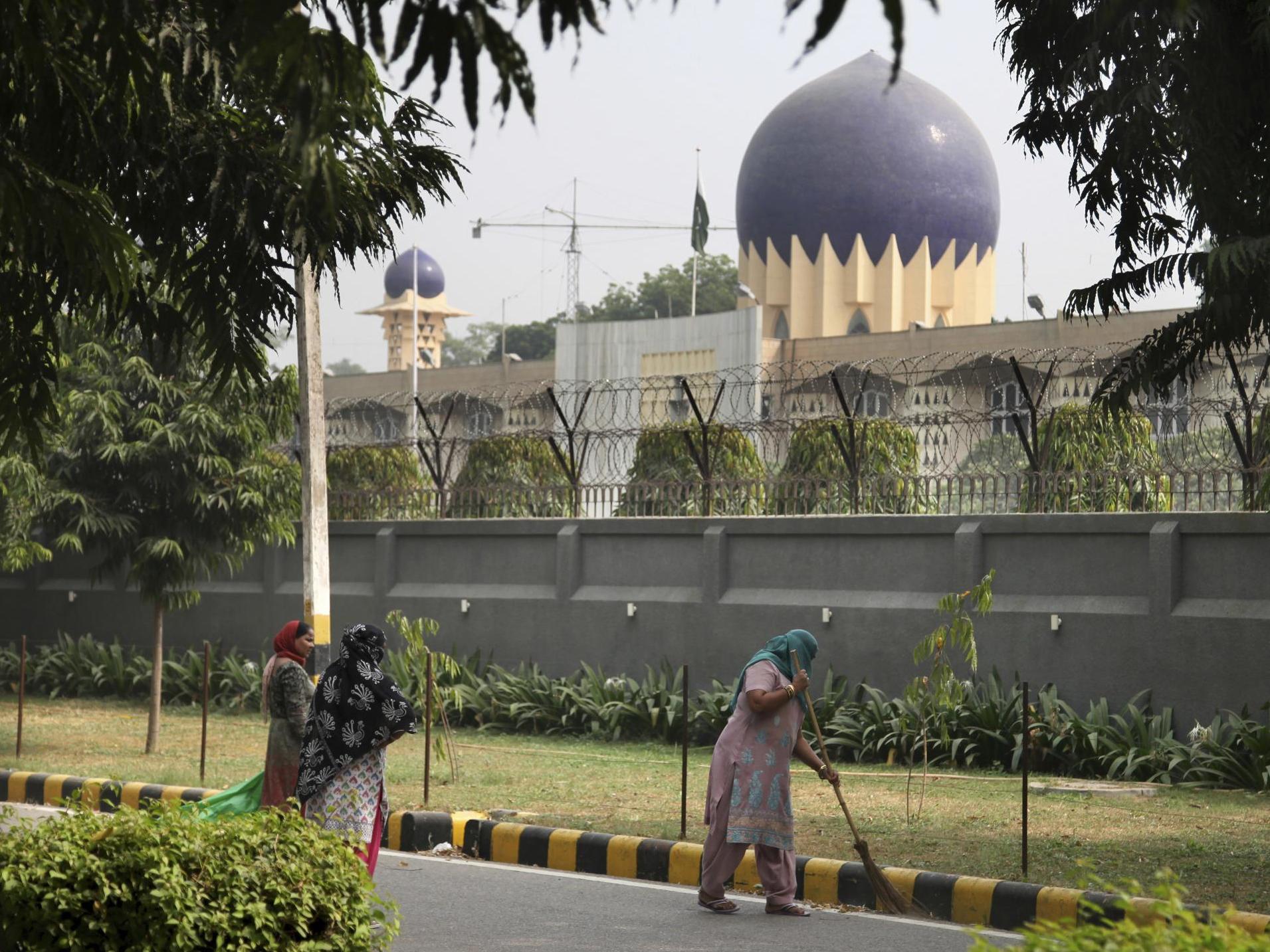India asks Pakistan to scale down diplomatic presence in ‘espionage’ row
One former official suggests the move is designed to distract from deadly border skirmish with China

India has asked Pakistan to reduce the staff in its Delhi high commission by half within seven days, accusing officials there of espionage. In a reciprocal move India will also scale down its own high commission in Islamabad by the same proportion.
The Indian ministry of external affairs (MEA) said in a statement on Tuesday that the charge d’affaires of Pakistan had been summoned, and reminded that India had repeatedly expressed concern about the activities of the neighbouring government’s officials.
“They have been engaged in acts of espionage and maintained dealings with terrorist organisations,” the MEA claimed. “The activities of the two officials caught red-handed and expelled on 31 May 2020 was one example in that regard.”
Both high commissions currently have 105 staff members.
Recent weeks have seen back-and-forth diplomatic expulsions by the two sides. India expelled two Pakistani officials last month on charges of espionage, declaring them “persona non grata” and ordering them to leave within 24 hours.
And last week, police in Islamabad detained two Indian high commission staffers over a hit-and-run traffic incident, but they were released following intervention from Pakistan’s foreign ministry. The two staffers reached India via the Wagah border crossing on Monday.
India’s MEA accused Pakistan of engaging in “a sustained campaign to intimidate the officials of the Indian high commission in Islamabad from carrying on their legitimate diplomatic functions”, and claimed the pair had been subjected to “barbaric treatment”.
The MEA further claimed that the behaviour of Pakistan and its officials did not conform to the Vienna Convention and bilateral agreements on the treatment of diplomatic and consular officials. On the contrary, it said it was an intrinsic element of a larger policy of supporting cross-border violence and terrorism.
Pakistan’s foreign ministry rejected and strongly condemned what it termed the baseless allegations made by the Indian MEA. In a statement it said the Indian charge d’affaires in Islamabad had been summoned so officials could convey Pakistan’s anger. Officials also outlined Pakistan’s decision to reduce the Indian high commission’s staff strength by 50 per cent in retaliation, giving the charge d’affairs seven days to implement it.
The foreign ministry dismissed claims it had violated the Vienna Convention on diplomatic relations, and also rejected the suggestion it had intimidated India’s diplomats in Islamabad. “The Indian government’s smear campaign against Pakistan cannot obfuscate the illegal activities in which the Indian high commission officials were found involved in,” it said. “The MEA’s statement is another effort to distort facts and deny the culpability of these Indian high commission officials in criminal offences.”
India’s latest action was a merely an attempt to divert attention from human rights violations in Kashmir, the foreign ministry continued. “India would be better advised to focus on its internal and external issues, rather than creating diversions at the cost of peace and stability in south Asia,” its statement read.
The disagreement rumbles on as Narendra Modi faces criticism from opposition leaders, diplomats and former generals over his handling of relations with China, following the killing of 20 Indian soldiers in a border skirmish.
Such is the reaction of Indians that the coronavirus crisis has been overshadowed by the Gulwan incident. China humiliated India in 1962 during a brief border war.
Former Pakistani diplomat Aqil Nadeem told The Independent that both countries had in the past accused each others’ staffers of indulging in espionage.
“In my opinion the decision itself and the timing of the decision is more to calm down Indians’ sentiments vis-à-vis the Indo-China situation. Pakistan is and always has been a saleable commodity in India. And this decision is to show the Indian people a strong and decisive Indian government.”
Nineteen years ago, following the attack on Indian parliament in December 2001, India fully withdrew its high commissioner from Islamabad and asked Pakistan to recall its high commissioner from Delhi.
Join our commenting forum
Join thought-provoking conversations, follow other Independent readers and see their replies
Comments